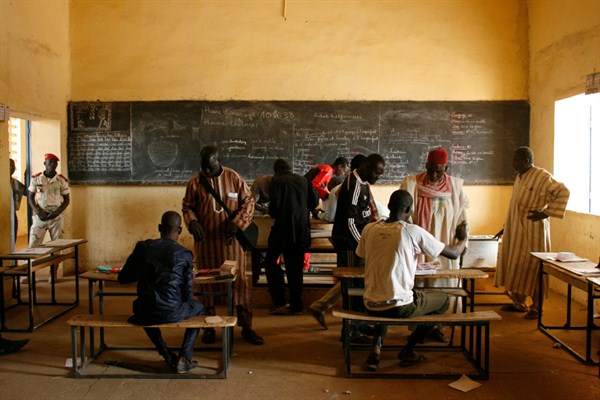On Feb. 21, voters went to the polls for the first round of Niger’s presidential election. Like many other West African states, Niger has a two-round system, in which the election goes to a run-off if no candidate wins an absolute majority. Niger faces just such a scenario: According to official results, incumbent President Mahamadou Issoufou, who took office in 2011, scored 48.4 percent of the votes. In the second round, scheduled for March 20, Issoufou will face the former speaker of the National Assembly, Hama Amadou, who won 17.8 percent in the first round.
Despite the vulnerability that incumbents have historically experienced in run-off contests in many West African countries, Issoufou is the strong favorite to win on March 20. He will likely benefit from the combination of his existing rural support, his ability to attract endorsements from some minor candidates, and his ongoing use of the machinery of power to constrain Amadou’s campaign. And if Issoufou wins, he may be emboldened to deepen Niger’s already-close security ties with the United States and other Western countries.
Experience suggests that Issoufou would be wise to fear a second round. Such moments have sometimes given West African opposition parties the opportunity to unify against incumbents, like in Senegal in 2000 and 2012. Senegal’s then-incumbent president, Abdou Diouf, got 41 percent of votes in the first round in 2000, while Abdoulaye Wade scored just 35 percent in the first round there in 2012. Both Diouf and Wade received nearly exactly the same proportion of votes in the second round that they did in the first, opening the door for decisive wins by their challengers.

